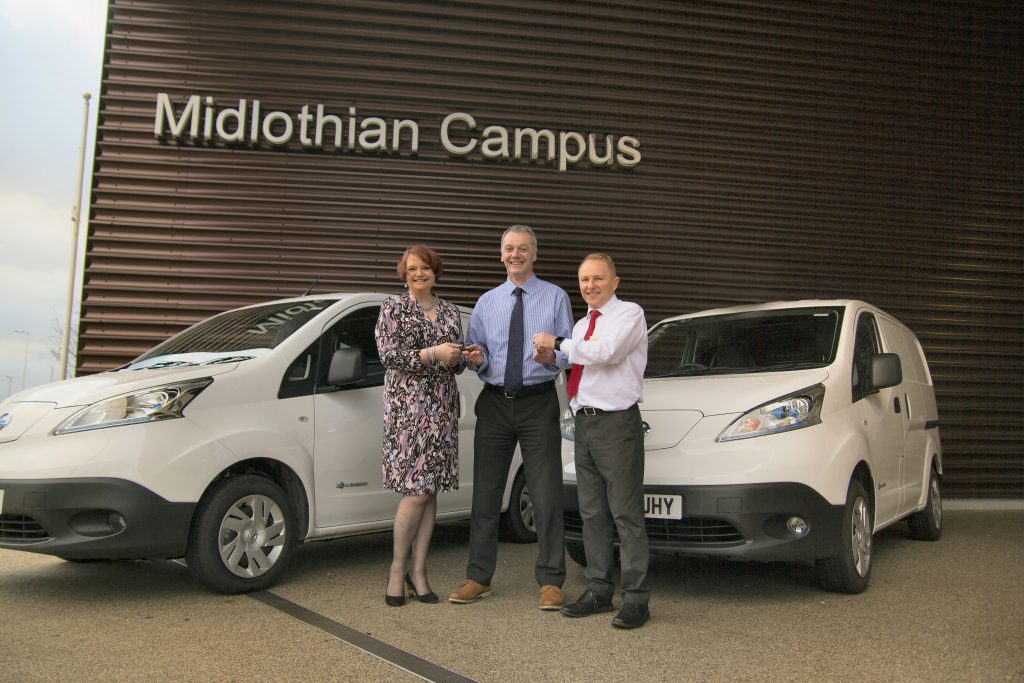EDINBURGH College’s electric vehicle fleet has had a green-powered boost with the arrival of two new Nissan e-NV200 vans, supporting its commitment to sustainable travel.
The two vans have been acquired through the Scottish government’s Switched On Fleets scheme, which has helped put around 350 electric vehicles into the public sector fleet. They replace diesel vans used by the college’s facilities staff and increases its electric fleet to 14.
The vans were supplied by Midlothian Nissan dealership, Alex F Noble & Son in collaboration with Automotive Leasing, which is working for Switched On Fleets.
Alex F Noble & Son also supports the college to provide two annual scholarships for engineering students to learn more about electric vehicles.
Jim Rowan, EV specialist at Alex F Noble & Son, said: “We have developed an excellent working partnership with Edinburgh College over the years and we’re very encouraged to see them continue to invest in Nissan with the addition of two new electric vans to their fleet.”
Edinburgh College has operated a zero-emissions pool car fleet since 2012, with charge points at all campuses for staff and the public. As well as staff use, students can benefit from the vehicles.
A comparison between one of the college’s diesel vans and an electric van shows diesel is about 500% more expensive to run – at 12p per mile compared to 2p for electric. Over six months, an electric van will save the equivalent of around three double-decker buses’ worth of CO2 from entering the atmosphere.
Edinburgh College’s electric vehicle administrator Bob Murphy said: “Our electric vehicle fleet has been making great strides in helping the college reduce emissions and save the costs of staff transport, and the new vans are a tremendous addition. We’re proud to be growing our fleet and showing that green transport is really viable.”
Scottish Transport Minister Humza Yousaf added: “I am pleased we have been able to support the introduction of two electric vans into Edinburgh College’s growing electric fleet, replacing two polluting diesel vehicles in the process.
“The college is also to be commended for introducing electric vehicles into their curriculum, enabling students to understand the wide range of opportunities associated with EVs in terms of the environment, health and the development of new skills.”




